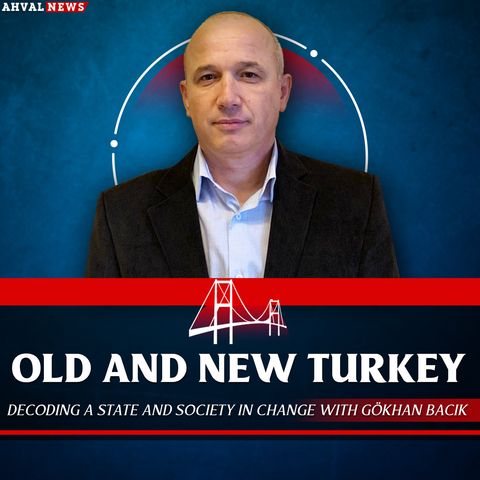'How Erdoğan changed the relations between Turkish state and Islamic groups' - Gökhan Bacık

Descarga y escucha en cualquier lugar
Descarga tus episodios favoritos y disfrútalos, ¡dondequiera que estés! Regístrate o inicia sesión ahora para acceder a la escucha sin conexión.
Descripción
Today that may be surprising given the deep religiosity that has come to characterise President Recep Tayyip Erdogan and his ruling Justice & Development Party (AKP). The extent to which...
mostra másDr. Gökhan Bacık explained in a recent podcast interview with Ahval News’ Editor-in-Chief Yavuz Baydar that traditionally the state has long used religion to help govern Turkey. However, the relationship was traditionally more asymmetric than it may be today.
“What we call Turkish state tradition has been more or less the same since the thirteenth century,” said Bacik, who teaches political science at Palacky University in the Czech Republic and is an expert on Turkish and Middle Eastern politics.
Rulers in Turkey during the Seljuk, Ottoman and republican era have all used Islamic groups in different ways as part of their governance. As the host of the caliphate and while controlling Mecca, Medina and Jerusalem, Islam’s three holiest cities, Ottoman rulers relied especially on Islam to cement its legitimacy as the centre of the Muslim world.
Once the Ottoman Empire collapsed, the new Turkish republic under Mustafa Kemal Ataturk underwent a process of reducing the power of Islam vis-a-vis the state, but not removing it completely. To this end, the Ministry of Religious Affairs was established in 1924 “to administrate the affairs related to faith and worship of the religion of Islam”.
Bacik acknowledges that Islam in Turkish politics was frequently used as an “ideology of justification” and was not always a “dynamic paradigm.” To this end, Turkey’s government would be content to work with religious groups, but only so long as it was the dominant player.
“When a group becomes too powerful to challenge the power elite, the state is quick to purge it,” said Bacik.
This has been a defining feature in the story of President Erdogan’s rise to power and take-over of the state. For years, Erdogan was a member of numerous Islamist parties that were suppressed by the republican authorities, but once he became prime minister in 2003, Erdogan found a ready ally in the movement of Fethullah Gulen. Together, they took over numerous posts in the government and worked together to defang the military, who saw itself as the protector of state secularism.
This partnership began crumbling after the Gezi Park protests and corruption investigations against the AKP in 2013. The drift reached a climax in 2016 after the failed coup attempt against Erdogan that he blamed on Gulen and his followers. Today they are regarded by terrorists by the Turkish state.
In some sense, Erdogan is a part of both trends; using religion as an ideology of justification and increasing pressure on it when religious forces opposed to him becomes a force in its own right.
“Erdogan has always been a part of this network, but skeptical of these religious orders,” Bacik explained.
Información
| Autor | Ahval |
| Organización | Ahval |
| Página web | - |
| Etiquetas |
Copyright 2024 - Spreaker Inc. an iHeartMedia Company
